Hay Festival #1: Lydia Davis Booker International Winner
‘I do love the basic Anglo Saxon vocabulary,’ said US-writer Lydia Davis at Hay Festival. The remark was prompted by a question from the audience (Why do you write so many single-syllable words?) Davis continued: ‘I do like the Latinate, too, but Anglo Saxon is the language of great emotion. “I am so mad.” “You are so wrong.” When to use different registers of language is an interesting question. The story itself makes the choice.’
Davis was speaking at a packed event just three days after winning the Man Booker International Prize, which is awarded every two years for a body of work in fiction. She was interviewed on stage by Fiammetta Rocco, literary editor of The Economist (amusingly apposite, given the economy of Lydia Davis’s writing style).
According to Rocco, many commentators have difficulty classifying her short-form writing. Some of her stories are just two sentences long. ‘Your writing seems to be the equivalent of poetry in prose; prose poems.’ But Davis answered, ‘To myself, I call them short stories, or very short stories.’
As well as being a prolific writer, Davis is a translator. ‘It was only when I first started translating Proust’s very, very long sentences that I started writing the very short pieces.’ She wanted to see if she could write short texts that ‘still had some substance.’
Rocco asked if Davis was afraid that that other writers’ work would infect her own. ‘It’s funny,’ she replied, ‘my writing was infected but only in my emails! I inserted lots of little clauses…’
The Hay audience were treated to a reading of Break It Down, a tragi-comic eight-page story about a love affair (from The Collected Stories of Lydia Davis). The main character assesses the cost-benefit of the assignation:
I’m breaking it all down. The ticket was $600 and then after that there was more for the hotel and food and so on, for just ten days. Say $80 a day, no, more like $100 a day. And we made love, say, once a day on average. That’s $100 a shot. And maybe each time it lasted two or three hours so…
You get the picture.
According to Davis, ‘I love math, and the premise of this story was Was it worth it? It was based in part on actual experience, so I reversed the genders. And it works. It’s a woman mind… called a man.’ Originally the story was set in a bar – the main character related an experience to his fellow drinkers. But her editor suggested she took away that frame – the bar, that is. And she took the advice. ‘The story always comes back to the calculation. I don’t usually end so neatly.’
Both her parents had fiction published in The New Yorker. Language was an important part of the family environment. Her father would always point out the double-meanings of public signs– Fine for Littering, Disabled Toilets. It was an atmosphere of ‘constant tutoring’ though she insisted it didn’t feel oppressive.
The End of the Story is Lydia Davis’s only novel. ‘I do think it’s overlooked. I’m identified as a writer of very, very short stories but the novel is very important to me.’ Writing the novel was a different experience for Davis. ‘I had to use diagrams, and I had two time periods. I wasn’t used to sustaining that sort of drive… Novels simply take too long!’
As we all filed out of venue, I earwigged and it was clear many people were surprised they hadn’t heard of Lydia Davis before. Within an hour her book sold out at the Festival bookshop.


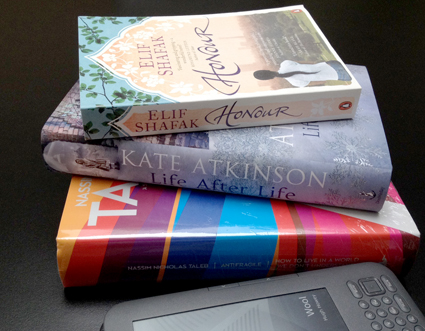

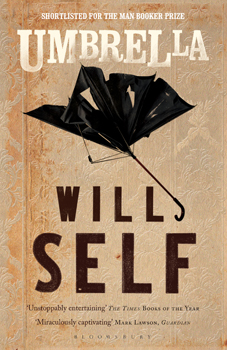
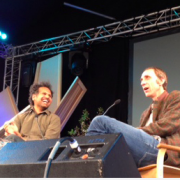
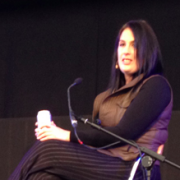
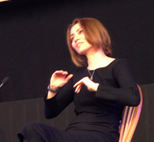

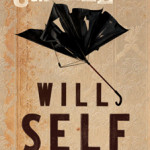

Trackbacks & Pingbacks
[…] Davis was awarded the Man Booker International Prize just before her talk at Hay Festival, which I reported on last week. On the subject of her writing process she had this to say: ‘I’m very afraid of planning; […]
Leave a Reply
Want to join the discussion?Feel free to contribute!